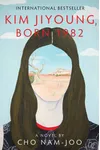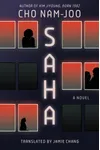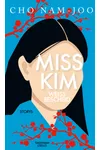Picture a South Korean storyteller who turned her personal struggles into a global feminist rallying cry—meet Cho Nam-Joo! Born in 1978, this former TV scriptwriter from Seoul’s gritty suburbs crafted Kim Jiyoung, Born 1982, a novel that sparked South Korea’s #MeToo movement and sold over a million copies. With a sharp pen and a fearless voice, Cho shines a light on gender inequality, making her a literary force to reckon with.
Cho’s journey from scriptwriting to bestselling author wasn’t just a career pivot—it was a rebellion against a society that often silences women. Her work, rooted in real-life experiences, blends raw honesty with statistical precision, turning everyday struggles into powerful narratives that resonate worldwide.
The Making of Cho Nam-Joo
Born in Seoul, Cho grew up in Bucheon’s working-class outskirts, where access to books was scarce. As a child, she devoured the few stories she could borrow, rereading them obsessively. Her father once promised to give her away if she were born a boy, a stark reminder of the gender biases she’d later confront in her writing. After studying sociology and working as a scriptwriter for a decade, Cho became a stay-at-home mom, a shift that fueled her frustration with societal expectations and inspired her literary breakthrough.
Cho Nam-Joo’s Unforgettable Stories
Cho’s third novel, Kim Jiyoung, Born 1982 (2016), is her crowning achievement. This slim, footnoted masterpiece follows an ordinary woman’s descent into a psychotic break, driven by relentless misogyny and motherhood pressures. Its release during South Korea’s #MeToo wave turned it into a cultural touchstone, translated into 18 languages and adapted into a 2019 film starring Jung Yu-mi. Cho’s clinical yet poignant prose, packed with statistics, makes Jiyoung’s story feel like both a novel and a searing social report.
Her later work, Saha (2019), dives into class and inequality, exploring a dystopian housing complex where residents grapple with societal exclusion. For Comaneci (2016) showcases her earlier, lighter style, earning the Hwangsanbeol Literature Award for its witty take on human resilience. Cho’s stories, often feminist and always grounded in reality, use everyday characters to expose systemic injustices, earning her a reputation as a voice for the unheard.
Cho calls herself a feminist, and her work reflects this unapologetically. Drawing from personal experiences—like being called a “mom-worm” while out with her baby—she crafts narratives that feel universal yet deeply Korean, blending humor, rage, and hope in a style that’s both accessible and profound.
Why Cho Nam-Joo Matters
Cho’s impact transcends literature. Kim Jiyoung, Born 1982 didn’t just sell books—it ignited debates, inspired protests, and fueled South Korea’s #MeToo and 4B feminist movements. Celebrities like BTS’s RM and Girls’ Generation’s Sooyoung praised it, amplifying its reach, though some faced online backlash for endorsing its feminist message. Globally, the novel’s translations have sparked conversations about gender inequality, proving that one woman’s story can ripple across cultures.
Cho’s legacy lies in her courage to speak truths others shy away from. By weaving statistics into fiction, she ensures her stories can’t be dismissed as mere anecdotes, challenging readers to confront uncomfortable realities. Her work continues to inspire women to demand change, making her a pivotal figure in contemporary feminist literature.
- Born: 1978 in Seoul, South Korea
- Key Works: Kim Jiyoung, Born 1982, Saha, For Comaneci
- Awards: 2017 Today’s Writer Award, 2016 Hwangsanbeol Literature Award
- Fun Fact: Inspired by Rebecca Solnit, Cho wrote Kim Jiyoung in just two months!
About Cho Nam-Joo
Ready to dive into a story that changed a nation? Snag Kim Jiyoung, Born 1982 and discover Cho Nam-Joo’s fearless feminist world!


